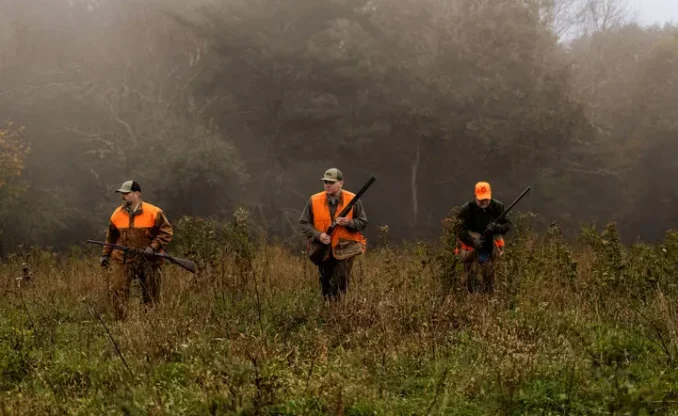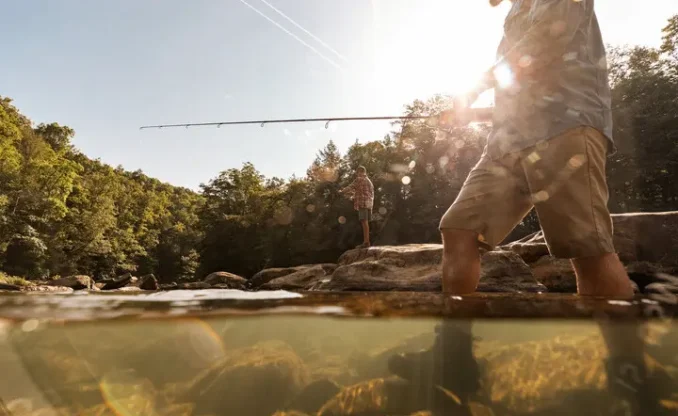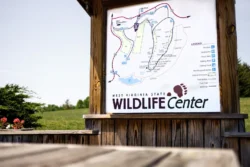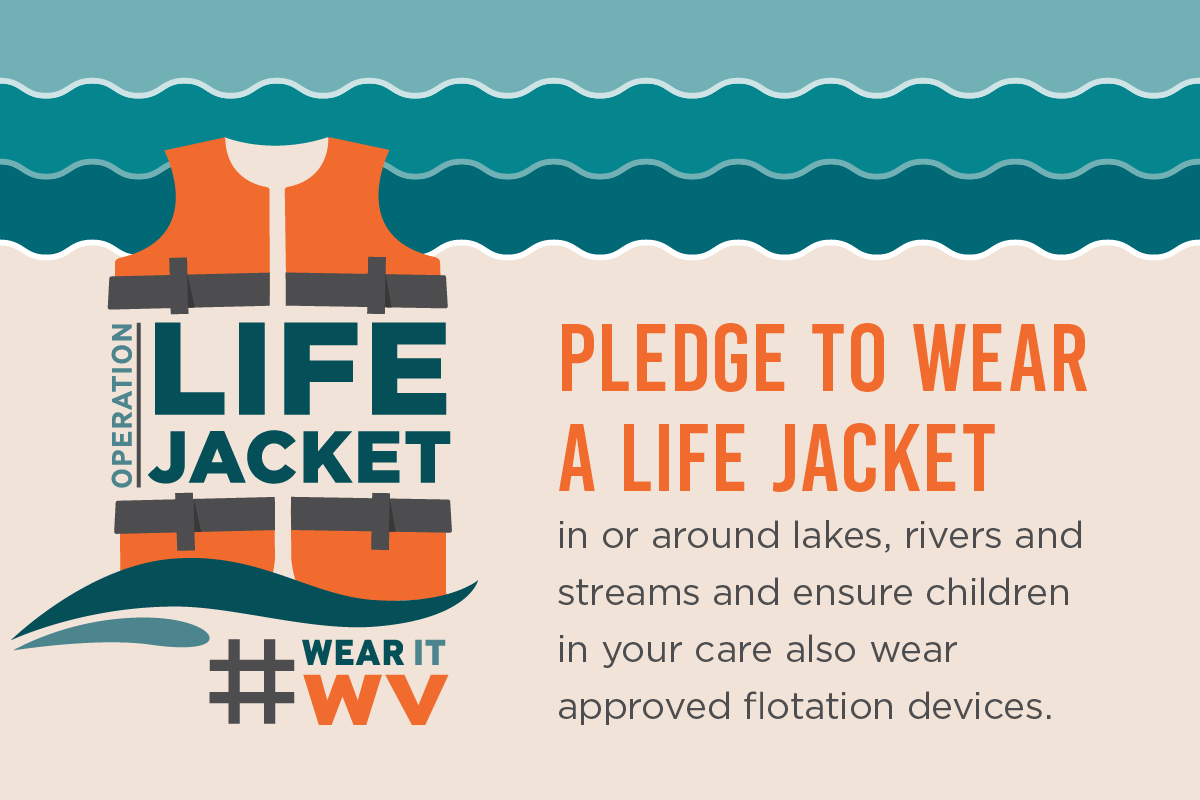The good thing about living in West Virginia is that there are plenty of streams, rivers and lakes where you can enjoy swimming and boating adventures in the summer. Just thinking about splashing around in that cool, clean water can make you feel like a kid again.
But before you jump into the water or fire up your boat engine, we want to remind you to be safe and wear a personal flotation device. You might not think it makes a difference, but putting on a life jacket can be what saves your life.
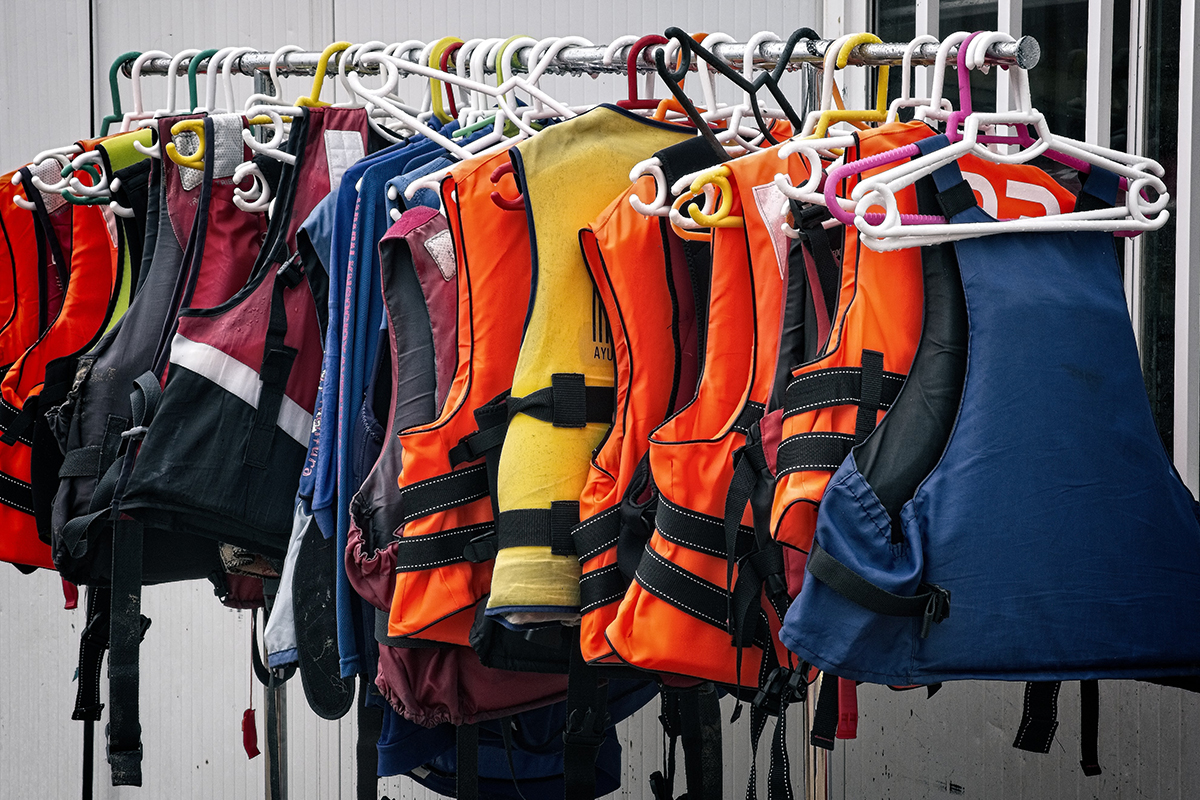
Why you need to wear a life jacket
Most water-related deaths, injuries and incidents happen because someone wasn’t wearing a personal flotation device. So, as you start planning summer trips to your favorite lake or swimming hole, keep these three things in mind:
Be smart. Be safe. Wear a life jacket. #wearitwv #safeboating
Tweet
According to the Centers for Disease Control and Prevention, there are an average of 3,536 non-boating related drowning deaths each year in the United States. An additional 332 people die each year from drowning in boating-related incidents. About one in five people who die from drowning are children 14 and younger.
Life jackets reduce the risk of injury and can save your life. You may never get in a car wreck, but wearing a seatbelt is there to protect you in the event that something unfortunate happens. A life jacket does the same thing.
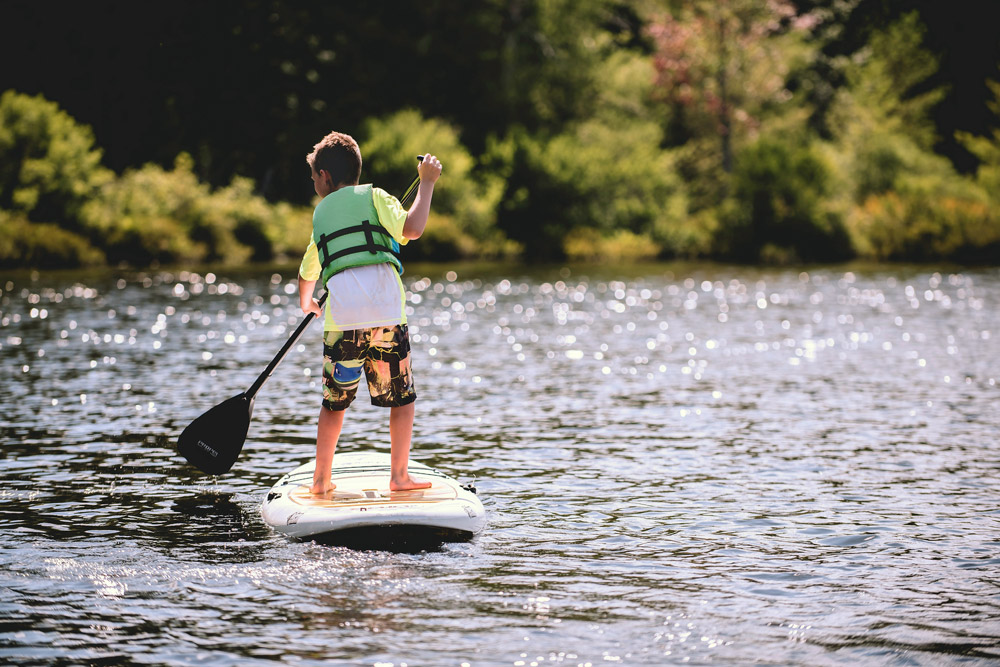
Swimming Safety
Even if you wear a life jacket, following these these swimming safety tips can help you and your family avoid injuries and incidents while swimming in a lake, river or stream.
- Teach kids water safety, first aid and CPR before swimming in a natural body of water. You can contact your local Red Cross for guidance.
- Never swim alone. Always have a partner. Never allow kids to swim unsupervised or be near water while unattended.
- Make sure your life jacket is properly fitted.
- Never dive or jump into an unknown area in a natural body of water. Swim in designated areas.
- Avoid swift current, flood waters and low head dam areas.
- Never consume alcohol or drugs and get into the water.
- Take breaks from swimming to avoid fatigue.
- Wear sunblock to avoid sunburn.
- Remember “Reach, Throw and Row” if someone needs help in the water. Have reaching or throwing equipment available and know how to use them.
- Call 911 for emergencies.
- DNR Law Enforcement officers are available for assistance and to answer questions about water safety.
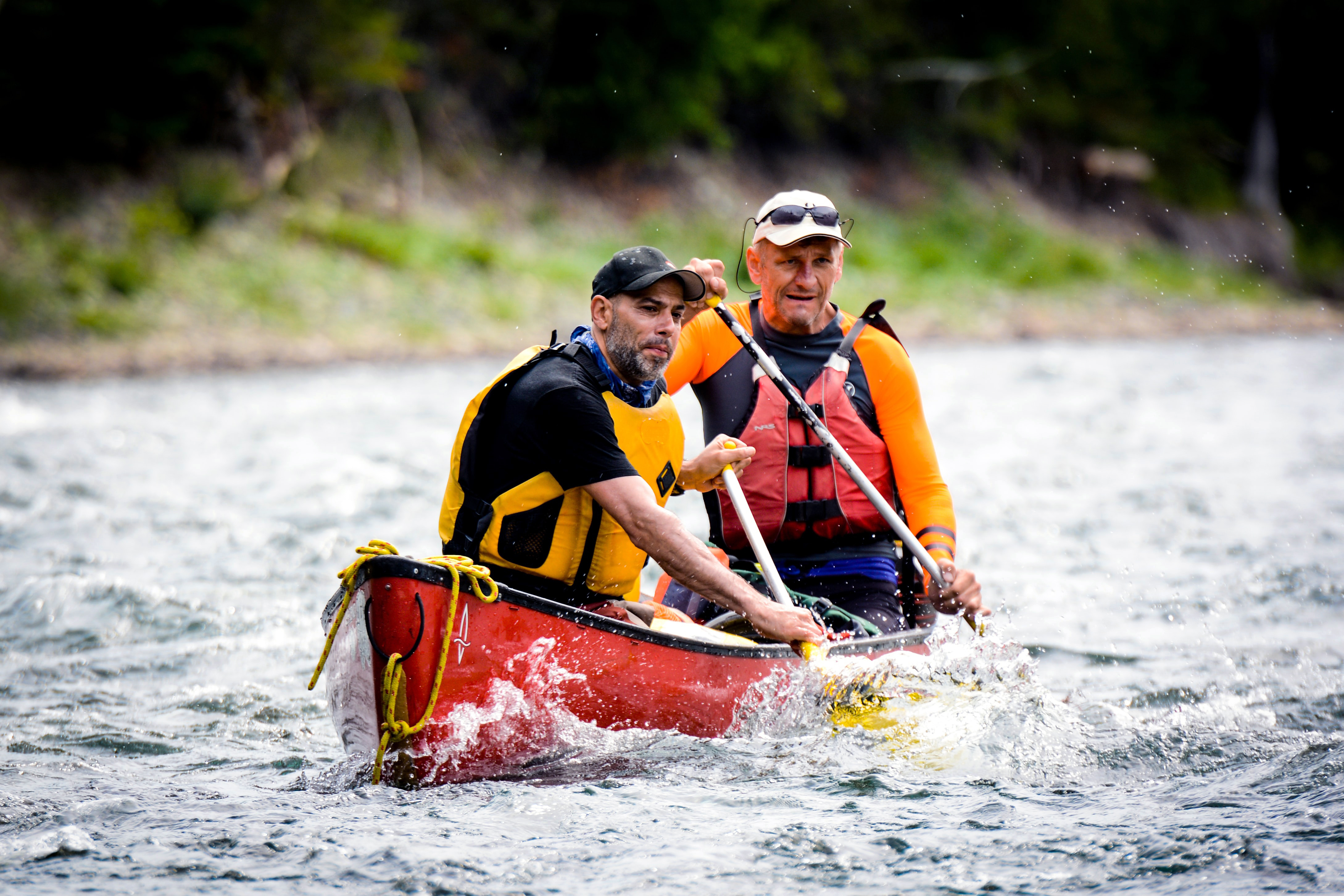
Boating Safety
State law requires anyone born after Dec. 31, 1986 to complete a National Association of State Boating Law Administrators approved boater education class before they can legally operate a motor boat or personal watercraft on any water in West Virginia.
The class covers topics such as U.S. Coast Guard navigational rules, safe motorboat operation and legal boating requirements in West Virginia. In-person classes are not available at this time, but the course can be completed online through a NASBLA and state-approved vendor for a fee.
To learn more about boating safety or to sign up for an in-person or online course, visit www.wvdnr.gov/lenforce/boating.

